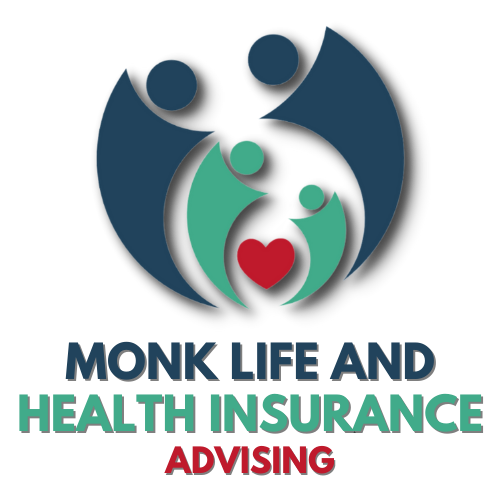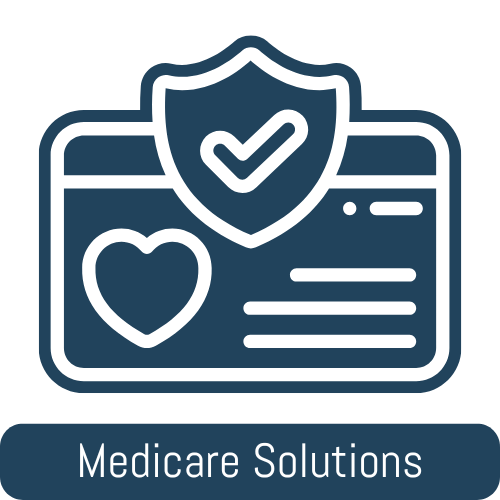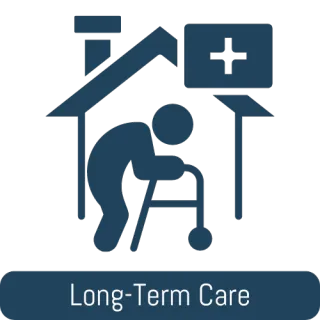
Medicare Annual Enrollment Period: October 15th - December 7th
Marketplace/Obamacare Open Enrollment Period: November 1st - January 15th

Whether you are turning 65 or you are exploring health insurance options to coincide with a disability, navigating Medicare can be a challenge. "What Part is this?" is a common question as Medicare has several "Parts" or sections that cover various things. At Monk Life and Health Insurance Advising, you can partner with a personal advisor to help you navigate and understand all of your options and help you enroll in whichever option works best for you.
Our Protection Solutions
Health Insurance
Whether you are needing help choosing your benefits at work or you are exploring coverage options for you and your family, we will walk with you and help you navigate the best fit for your needs.

Life Insurance
If you're looking to protect your family financially just in case the worst should happen, or if you are trying to plan for the future, we have solutions that will work for you!

Medicare Solutions
Medicare can be a new realm of confusing for many people. It can be even worse if you are getting blasted with phone calls. We can help you navigate your options and find which Medicare solution is right for you.

Financial Coaching
Get on speaking terms with your finances with a personal coach at your side. Need help managing debt? Tired of living paycheck to paycheck and want a strategy to a more sustainable way of life? We got you covered

Disability Insurance
Want some padding for you income in case you are ever unable to work? Disability insurance can help protect you in case of a short-term or long-term disability and help keep you and your family going while you wait to return to work.

Long-Term Care Insurance
Planning for the future can be challenging. The cost of assisted living facilities, home health care, and other long-term care solutions can be expensive, especially if you find yourself on a fixed income. We can help you plan ahead and make sure your long-term care needs will be met.

Identity Theft Protection
Keep you and your family safe from identity theft. Simple and inexpensive.

When do I qualify for Medicare?
You can qualify for Medicare in the following situations:
- You are 65 years old or older
- You have End-Stage Renal Disease or ALS
- You receive Social Security Disability for at least 24 months
First Things First
When you first qualify for Medicare, your first step will be to enroll in Parts A and B. This is known as Original Medicare. Enrollment in Parts A and B are done through the Social Security Administration. If you sign up to receive your Social Security benefits, you will automatically be enrolled in Parts A and B. If you haven't taken your Social Security benefits or you had employer insurance when you turned 65 and you just need to enroll in part B, you can enroll online at https://www.ssa.gov/medicare/sign-up over the phone at 1-800-772-1213 or in person by scheduling an appointment at your local Social Security office.
NOTE: If you are turning 65, you can apply for Medicare 3 months before your birth month. If you are under 65 and applying because of ESRD, ALS, or Disability, certain stipulations will apply. At any point in this process, feel free to contact us and we can help you navigate your specific situation. Once you have enrolled in Part A and B, we can help you navigate your choices for a Medicare Supplement (Medigap), Prescription Coverage, Dental and Vision Coverage, or Medicare Advantage.
What does part A and B cost?
Generally, part A will be free as long as you have paid enough credits into Social Security. Part B is a set premium which is subject to change each year. As of 2024, Part B premium is $174.70. Your part B premium is generally paid directly from your Social Security check.
What does part A and B cover?
Part A, generally known as Hospital Insurance will help cover expenses while you are in the hospital. Part B, know as Medical Insurance helps cover your day-to-day medical expenses such as doctor visits. It is important to note that there are many things Part A and B do not cover and limits to the amount they will cover. For instance, Part A will only cover you for up to 90 days in the hospital. Anything after 90 days will be your expense. Prescription drugs are also not covered under Parts A & B. This is where the other "Parts" of Medicare come into play.
What are my options beyond Part A and B?
There are two distinct paths you can take beyond Parts A and B to help you cover the expenses A and B don't cover. Your advisor can help you navigate which option will work best for your situation.
Medicare Supplements and Prescription Coverage (Part D)
Medicare supplement plans pick up where Parts A and B leave off and help cover everything beyond Parts A and B. With Plan G, for instance, beneficiaries only have to pay their annual Medicare Part B deductible, after which the plan provides 100% coverage on all Medicare-covered medical expenses. For Medicare supplements, you pay your Part B monthly premium as well as a monthly premium for the supplement plan. It is important to note that Medicare supplements do not cover prescription drug coverage, dental, or vision, so standalone options are available to purchase at an additional premium. The benefit of a Medicare supplement is knowing that all Medicare-covered expenses will be taken care of and you know monthly what you will pay for all your premiums.
Medicare Advantage
Medicare Advantage plans function more like a traditional insurance plan like you would find through and employer. Medicare Advantage plans tend to lower premiums than a supplement, but you will pay a co-pay or coinsurance for covered services until you meet an annual maximum (known as your Out-of-Pocket Maximum). Medicare Advantage plans also usually to include coverage for prescriptions, as well as dental and vision. Medicare Advantage plans have the benefit of lower cost and having the prescription drug, dental, and vision coverages included.
Part B and D Late Enrollment:
When you become eligible for Medicare, unless you have other qualified coverage such as coverage through a job, you may pay a late enrollment penalty if you choose not to enroll in Part B and Part D (Prescription Drug Coverage) when you first become eligible. The late enrollment penalty for Part B is 10% for each year you could have signed up for Part B, but didn't. The late enrollment penalty for Part D is 1% per month you could have signed up for Part D, but didn't. As long as you have had creditable coverage the entire time, these penalties will not apply. In most cases, if you choose not to enroll in Part B and D because you currently have coverage through your job, these penalties will not apply and you will qualify for a special enrollment period when you lose your employer coverage. Always confirm with your employer to make sure your prescription coverage through work is creditable.
We do not offer every plan available in the Amarillo area. Currently we represent 5 organizations which offer 41 products in the Amarillo area. Please contact Medicare.gov, 1-800-MEDICARE, or your local State Health Insurance Program (SHIP) to get information on all of your options.